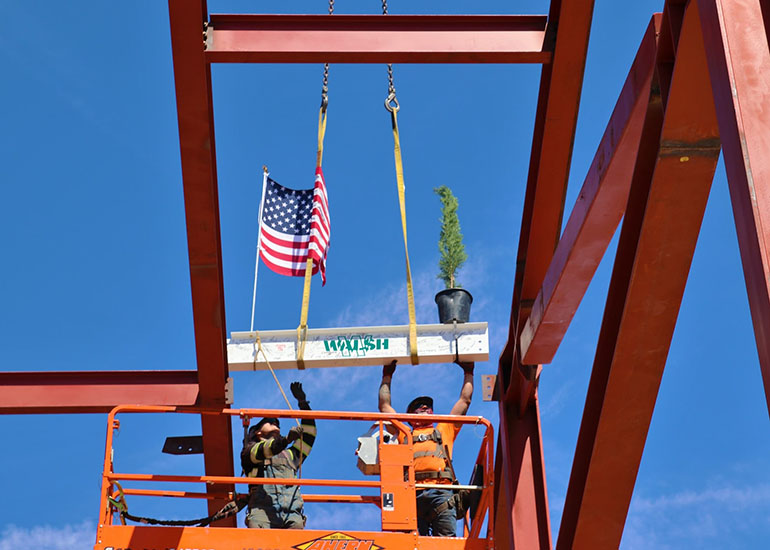
Construction of the OC Streetcar project reached a milestone this week as construction crews placed the final steel beam on the building that will house the streetcar vehicles.
Several staff members from the Orange County Transportation Authority, which is building the OC Streetcar, and from the contractor The Walsh Group signed the final beam that was then lifted to the top of the building along with an American flag and a tree (a construction tradition) and secured into place at the top of the building on Tuesday afternoon.
It marked the completion of the frame for the OC Streetcar’s Maintenance and Storage Facility (MSF) in Santa Ana, which is where the streetcar vehicles will be stored, washed and maintained.
Construction of the rails and stations continues along the route, including in Downtown Santa Ana, where crews are working on an expedited schedule and OCTA is working with the city of Santa Ana to minimize the effects of construction on local businesses.
The OC Streetcar vehicles are being manufactured by Siemens in northern California. Completing the MSF building will allow for the vehicles to be delivered and stored once they are finished. Delivery of the first streetcar vehicles is expected in 2023, with testing expected to begin shortly after.
The OC Streetcar, estimated to cost $509.5 million with a majority of the cost paid with federal funding, will run on just over 4 miles of track in each direction through Santa Ana and Garden Grove. It is scheduled to begin operations in early 2024.
The OC Streetcar route, chosen by the city of Santa Ana, will serve the city’s thriving downtown and dense employment areas that include county and local government offices and courthouses in the Civic Center.
The streetcar will carry passengers between the busy Santa Ana transit center and a transit stop at Harbor Boulevard and Westminster Avenue in Garden Grove, running along Santa Ana Boulevard, Fourth Street and the Pacific Electric right-of-way and connecting with OCTA’s busiest bus routes.
Six vehicles – with two spares – will operate daily, making stops at 10 locations in each direction every 10 to 15 minutes.
For more information on the project, visit www.ocstreetcar.com.
